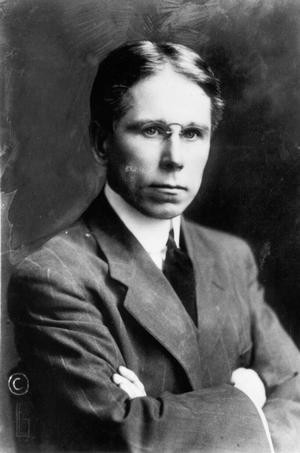Clinical psychology is a subdiscipline within psychology that studies all the elements involved in mental disorders and, more generically, mental health.
Thus, clinical psychology carries out all the tasks of evaluation, diagnosis, prevention and therapeutic intervention in people with some type of mental impairment or maladaptive behavior, in order to restore psychological balance and eliminate all suffering.
Clinical psychology: a broad scope
Psychologists who work in the clinical field may have training in different schools, such as cognitivist, behaviorist, psychoanalyst, humanist, gestalt or systemic family therapy, among others.
What does a clinical psychologist do?
Clinical psychologists are mental health professionals who are responsible for caring for people who feel some type of psychological discomfort. In this sense, heClinical psychologists are responsible for diagnosing certain psychological disorders to later offer a personalized intervention through psychotherapy.
Although this is the main aspect in which they intervene, psychologists also participate in the field of research (for example, contributing their knowledge in different scientific studies), in teaching (working as professors in public or private institutions), and even in other minority fields such as sports psychology, school psychology or as experts in clinical and forensic psychology.
The beginning of clinical psychology: Witmer and Freud

If we turn to the History of Psychology manuals, it is usually pointed out that the beginning of what we know today as clinical psychology occurred in the United States during the last years of the 19th century. At that time, a psychologist named Lightner Witmer (disciple of Wilhelm Wundt) opens the first psychological clinic to care for people suffering from psychological problems, at the University of Pennsylvania.
In Europe, the honor of being considered the precursor of clinical psychology usually falls to the famous Sigmund Freud. Although many academics tend to question the convenience of declaring Freud as one of the architects of clinical psychology (since psychoanalysis arouses a long controversy), the truth is that The Austrian was one of the first neurologists who approached the study and therapeutic intervention of people with psychological disorders
Freud, already in 1895, was dealing with defenders and detractors. His vision of therapeutic intervention and his theoretical bases focused on three levels: study, direct therapeutic intervention and theory formulation. This methodology founded the basic criteria of applied clinical psychology.
Twentieth century
During the first decades of the 20th century, The field of clinical psychology focused on psychological evaluation, but placed little emphasis on intervention methodologies It is after World War II when there is a boom in the revision of treatments, due to the high number of people who were psychologically damaged after the war conflict.
As a result of this historical stage, the interest and need to provide resources to the field of clinical psychology becomes evident. Psychology faculties emerge and consultations and offices dedicated to treating mental problems are opened. From the academic world to public institutions, they agree on the need to promote study and clinical intervention, due to their positive effects on people’s quality of life.
Confusion between clinical psychology and psychiatry
In our article “What is the difference between a psychologist and a psychiatrist?” We explain the similarities and differences between these two disciplines. Of course, knowing the functions of these two professional fields continues to be a source of confusion.
The main similarity between clinical psychology and psychiatry is that both pursue the same goals: treat and mitigate psychological suffering But both professionals differ in their previous training: the psychologists studied psychology and the psychiatrists studied medicine. Another important difference is that psychiatrists are authorized to prescribe psychotropic drugs, while psychologists are not. In clinical practice, it is common for psychiatrists and psychologists to work together to treat patients who require multidisciplinary approaches.
Areas and applications of clinical psychology
Clinical psychology has been studied and perfected throughout the 20th century and in recent years, and has been the subject of study by many professionals and academics of human behavior.
Since the first years with Wilhelm Wundt in his Leipzig laboratory, in which he tried to find all the observable and measurable variables of behavior, clinical psychology has spread to become the branch “par excellence” among psychology graduates. In fact, and although psychology develops in clearly differentiated branches (business, educational, forensic, social…), Clinical psychology has always been the most popularly recognized branch
However, there are multiple approaches and tools used by clinical psychology professionals, who work focusing on different fields of study according to different criteria, such as the following:
In short, each clinical psychology professional can specialize in the field (or those) where they want to focus their professional practice. The people who may require therapeutic care are varied: from children to the elderly, from people with underlying illnesses to healthy people, from people who have a strictly psychological problem, to others whose condition is related to a bad family or social dynamic.
In order to achieve a greater understanding of each psychological affectation, Clinical psychologists can specialize in different fields Through the knowledge and tools acquired, they will be able to offer more precise diagnoses and treatments to their patients.
Prominent personalities
Many clinical psychologists have left us invaluable theories and teachings that have served as academic inspiration to build knowledge of this discipline.
It can be said, correctly, that many of them were not trained psychologists, but psychiatrists. However, it is possible to consider them psychologists to the extent that they were figures who contributed enormously to the theoretical and practical basis of clinical psychology.









